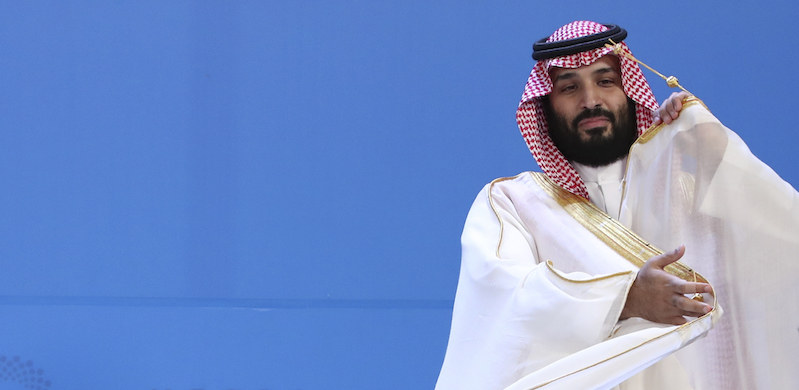Saudi Arabia’s de facto leader, Crown Prince and Prime Minister Mohammed bin Salman (MBS), has long been trying to give his country a more modern and presentable image: to ease pressure from the Western media, encourage investment foreign countries and improve political relations with their allies. But in the country, which was and remains an authoritarian state, the death sentences of opponents of the monarchy and common criminals have never stopped, so much so that they even doubled last year. In 2022, according to a count of the news agency AFP138 people were sentenced to death: there were 69 in 2021.
In Saudi Arabia, as elsewhere, the death penalty is justified by the application of sharia law, which represents the set of Islamic moral and legal principles, often interpreted in an extremely radical way. The Saudi regime and MBS itself have repeatedly pledged to comply with a moratorium announced in January 2021 by the country’s Human Rights Commission on death sentences, with the aim of limiting their application to the crime of murder. But the commitment was never fulfilled.
At the end of January, the death penalty was requested against a law professor: Awad Al-Qarni, 65, arrested in September 2017. Al-Qarni was accused of being a dangerous preacher and of having spread subversive speeches on WhatsApp and on his Twitter and Instagram accounts. The news was given by Guardian who had access to court documents thanks to Al-Qarni’s son, who fled Saudi Arabia last year and fled to the United Kingdom where he sought asylum.
On March 12, 2022, Saudi Arabia communicated that it had carried out 81 death sentences, killing men accused of terrorism and, depending on the case, of being members of terrorist groups such as al Qaeda and the Islamic State (or ISIS) or of the Houthi, Yemeni and Iranian-backed rebels against whom Saudi Arabia is waging a bloody war in Yemen. Forty-one of these men belonged to the country’s Shia minority, which is the victim of systematic persecution. March was one of the largest single-day executions in the country’s history.
Mohammed bin Salman has been crown prince of Saudi Arabia since June 2017 and prime minister since September 2022. The international press took notice of him for a huge and ambitious reform plan presented in April 2016 and called “Vision 2030”, which it was supposed to make the country independent of oil market trends by 2030. MBS received enormous attention at the time and used it to climb the Saudi royal family piece by piece, until being named heir to the throne by King Salman, his father, and become the most powerful and important politician in the kingdom.
From then on MBS began to be described by many international newspapers as the promoter of a different Saudi Arabia, freer and less tied to the previous rigid interpretation of Islam. Much prominence was given to some of his reforms, such as that of driving licenses for women, live concerts, moderate Islam and the reopening of cinemas.
Immediately, however, other analysts said that the crown prince was already systematically persecuting and repressing all those capable of threatening his power. MBS is accused of instigating many crimes, including the murder of Jamal Khashoggi, a dissident and collaborator of the Washington Post killed in the Saudi consulate in Istanbul in October 2018.
Diverse ong come Human Rights Watch o Amnesty International have repeatedly condemned and called for the abolition of the death penalty in Saudi Arabia. And various convictions for the failure to respect human rights in Saudi Arabia, over time, have also come from various countries, such as France or the United States.
Last year, however, those same countries ended the brief international isolation imposed on the Saudi prince after the killing of Khashoggi, welcoming him or meeting him on official visits. Saudi Arabia is a major exporter of oil, an energy source that has become even more sought after as many governments have begun forging new deals with energy suppliers to reduce their dependence on Russia.
